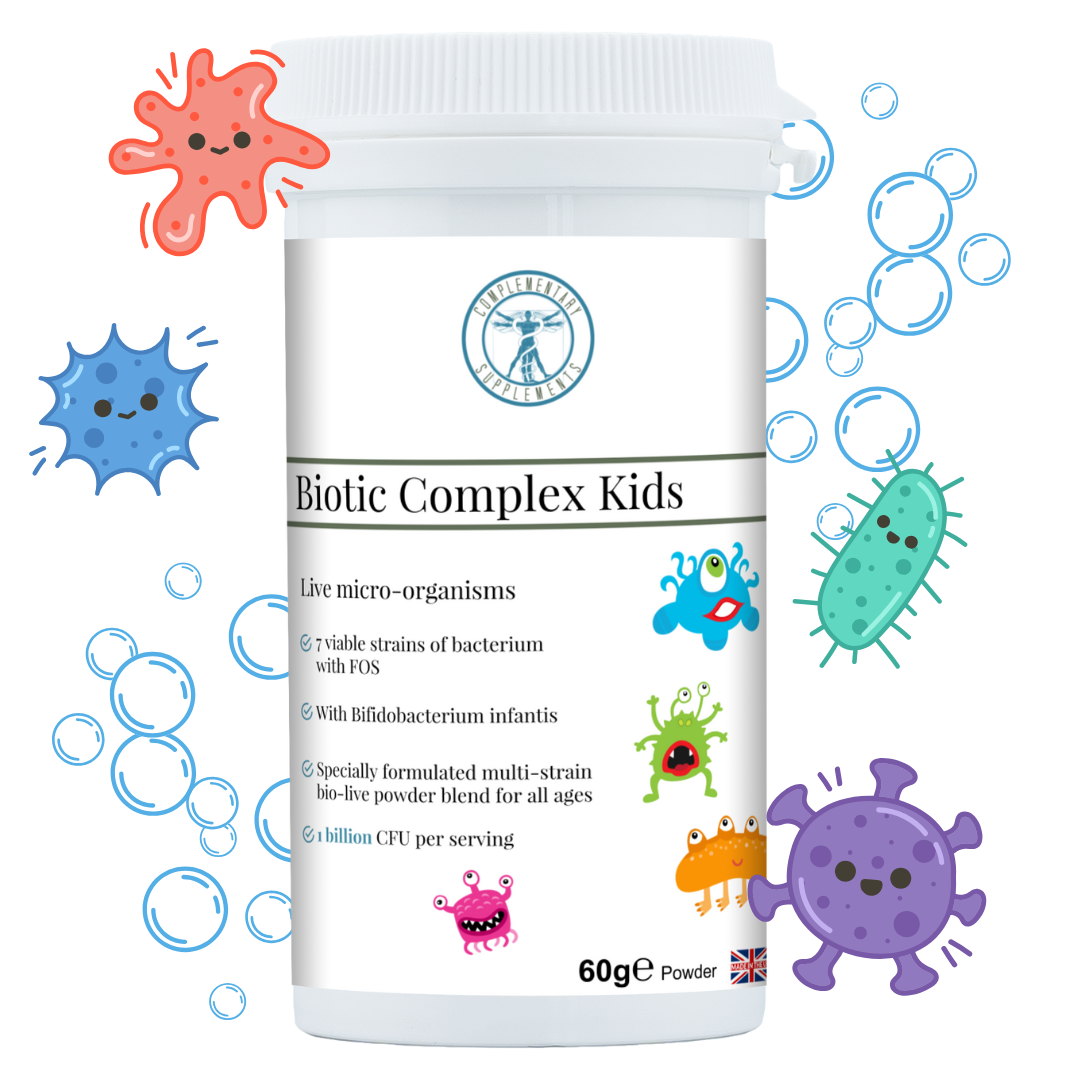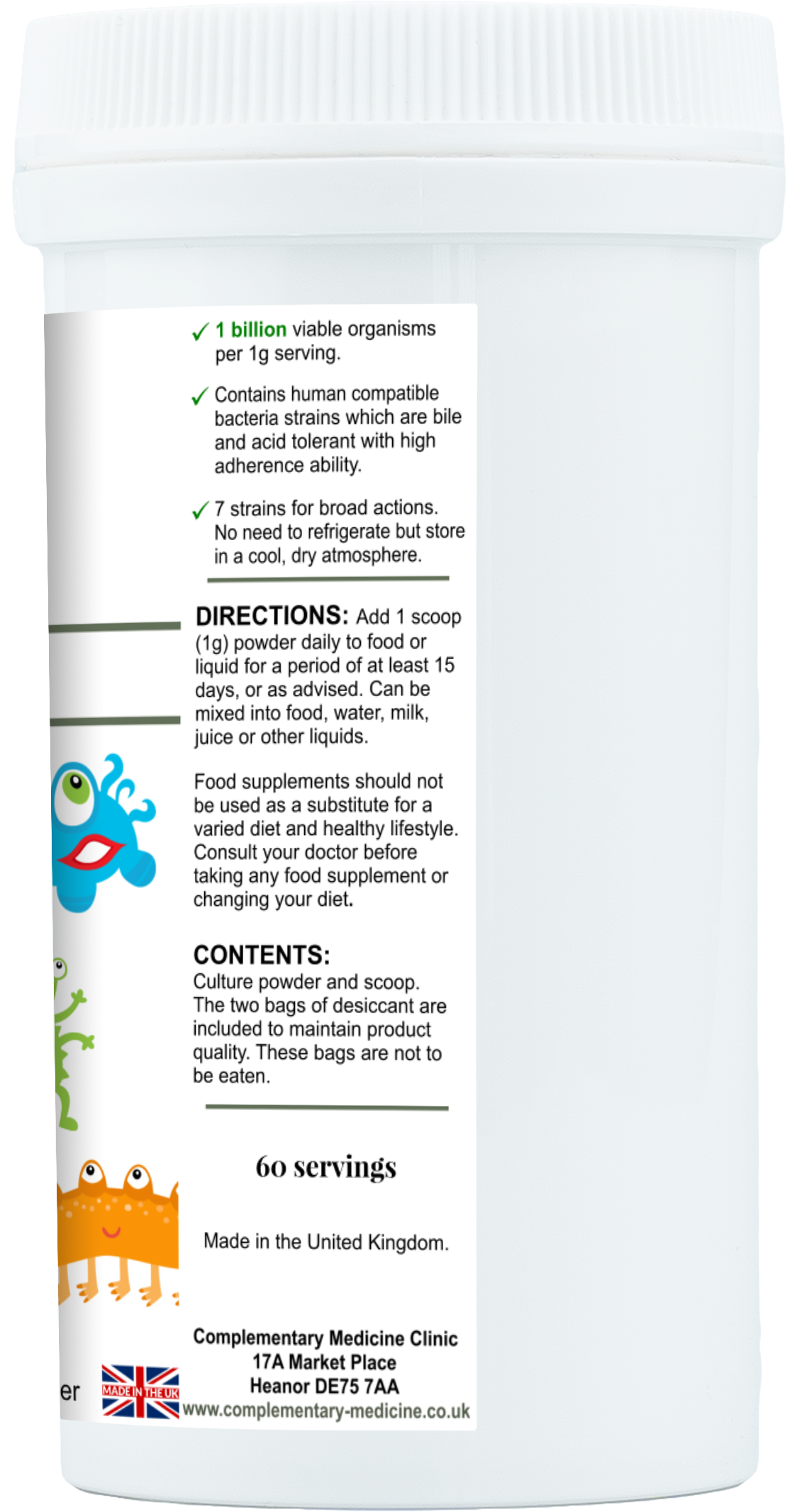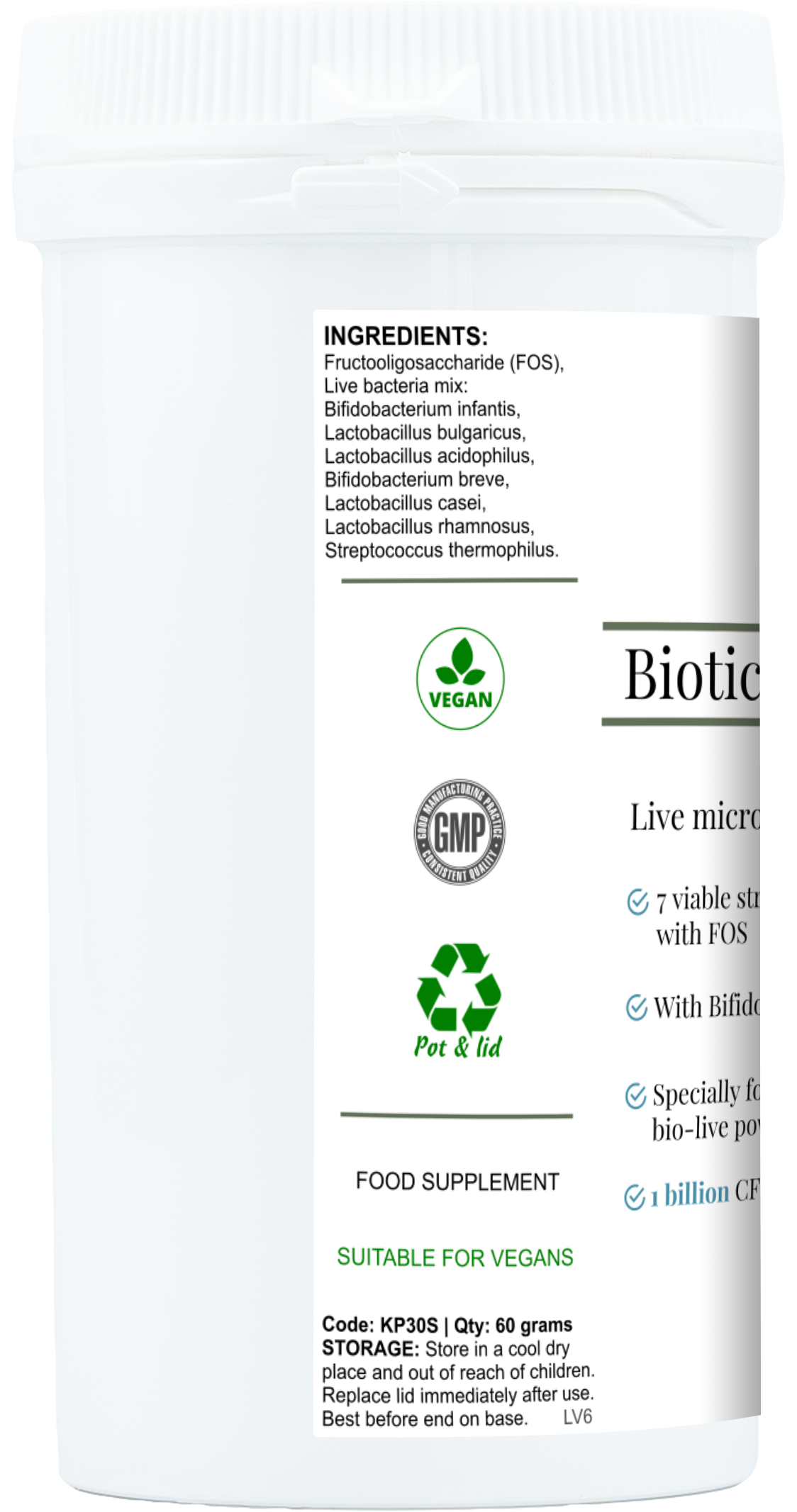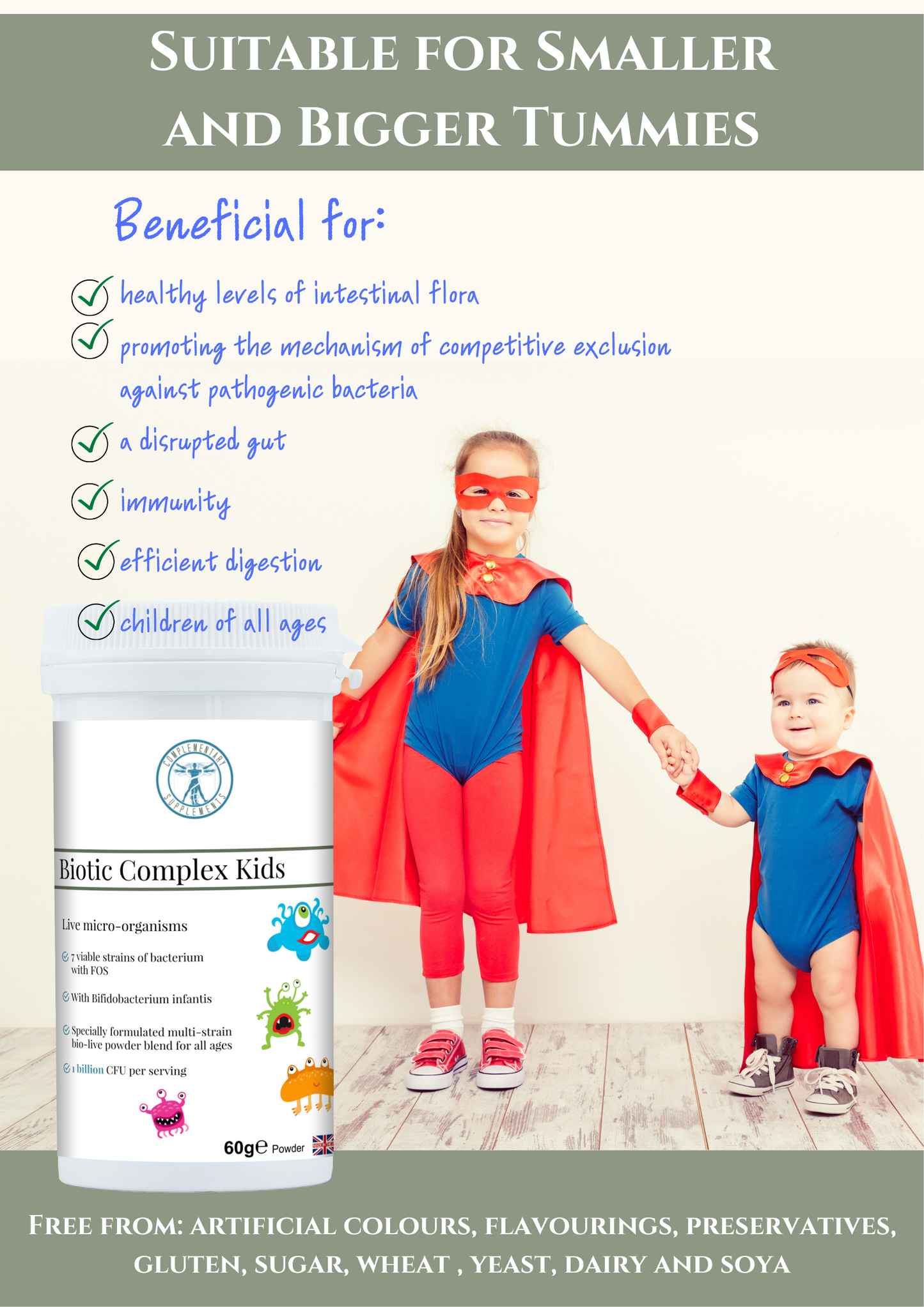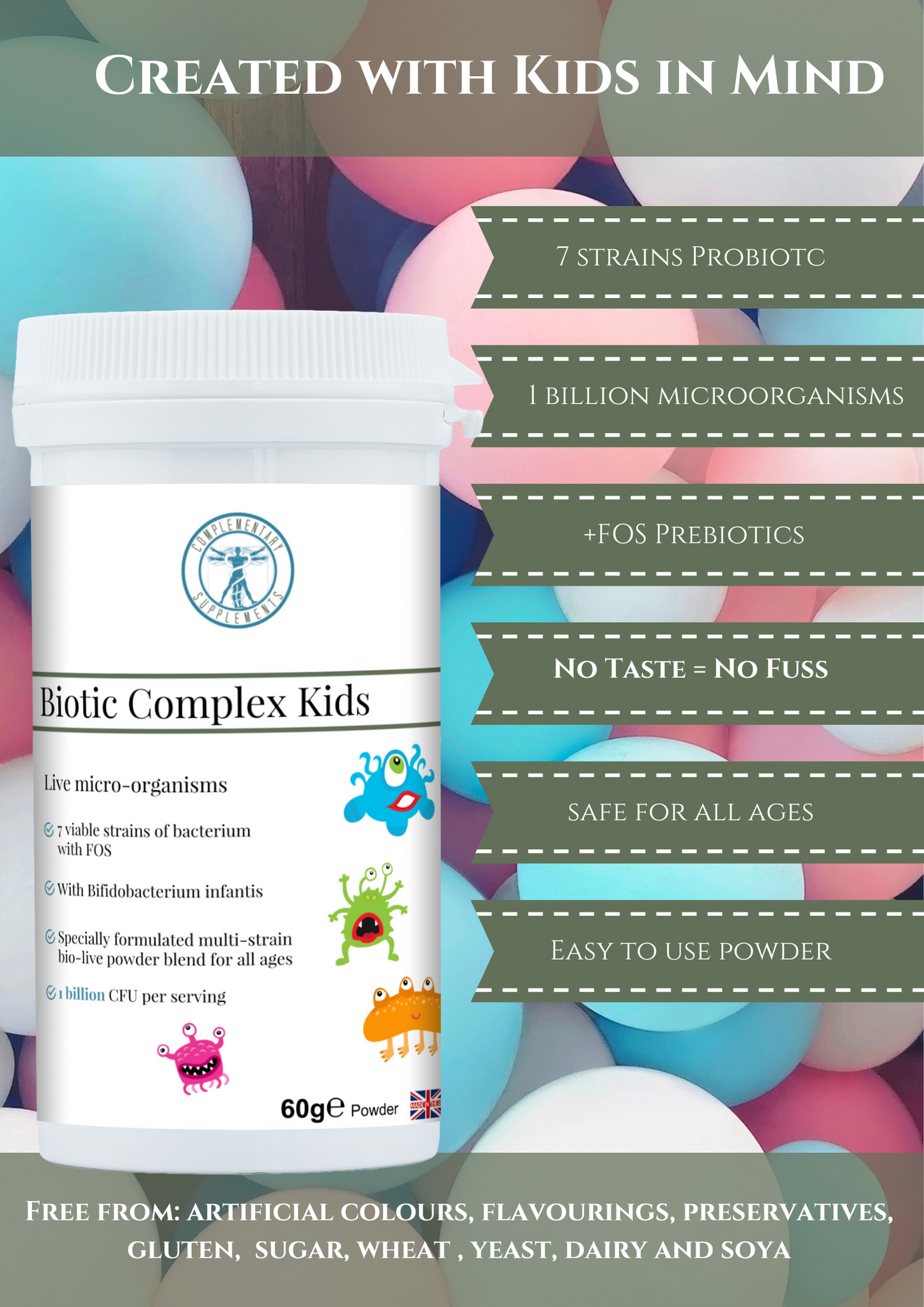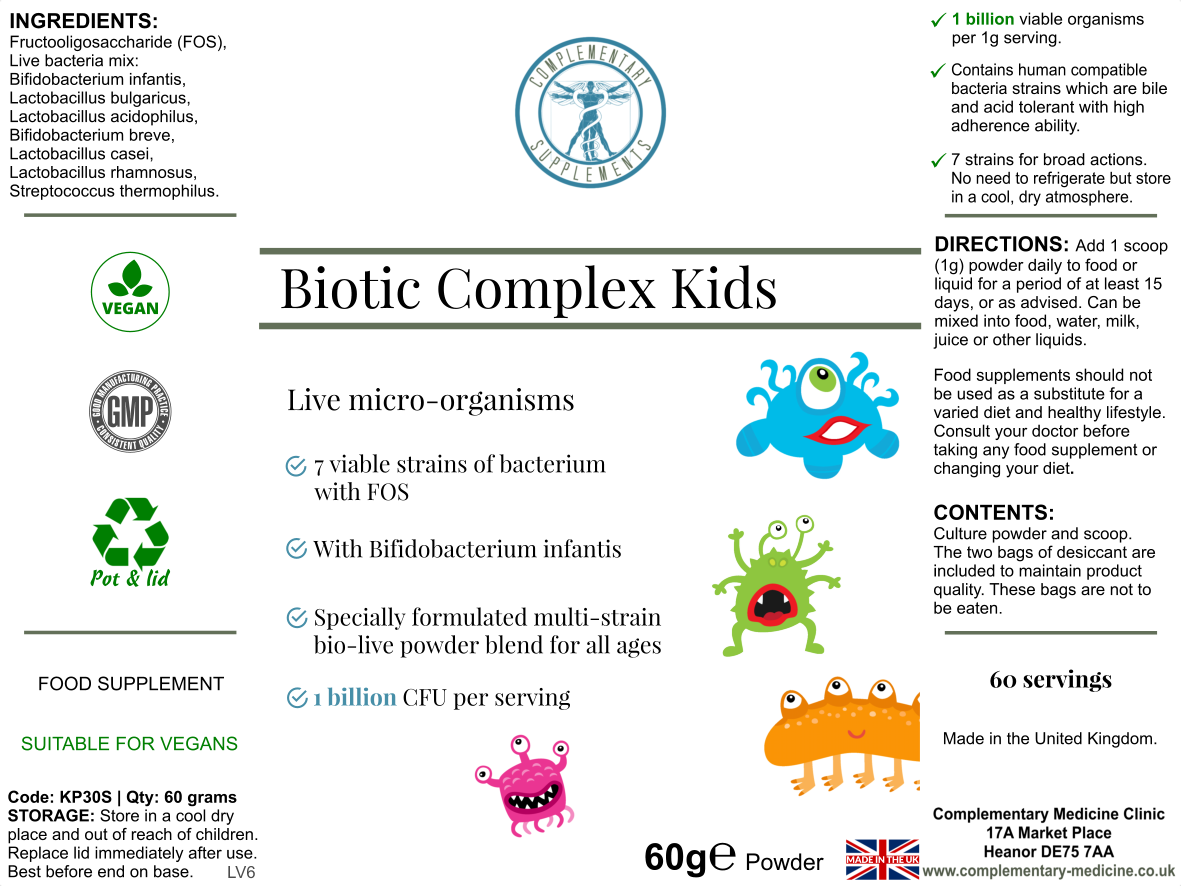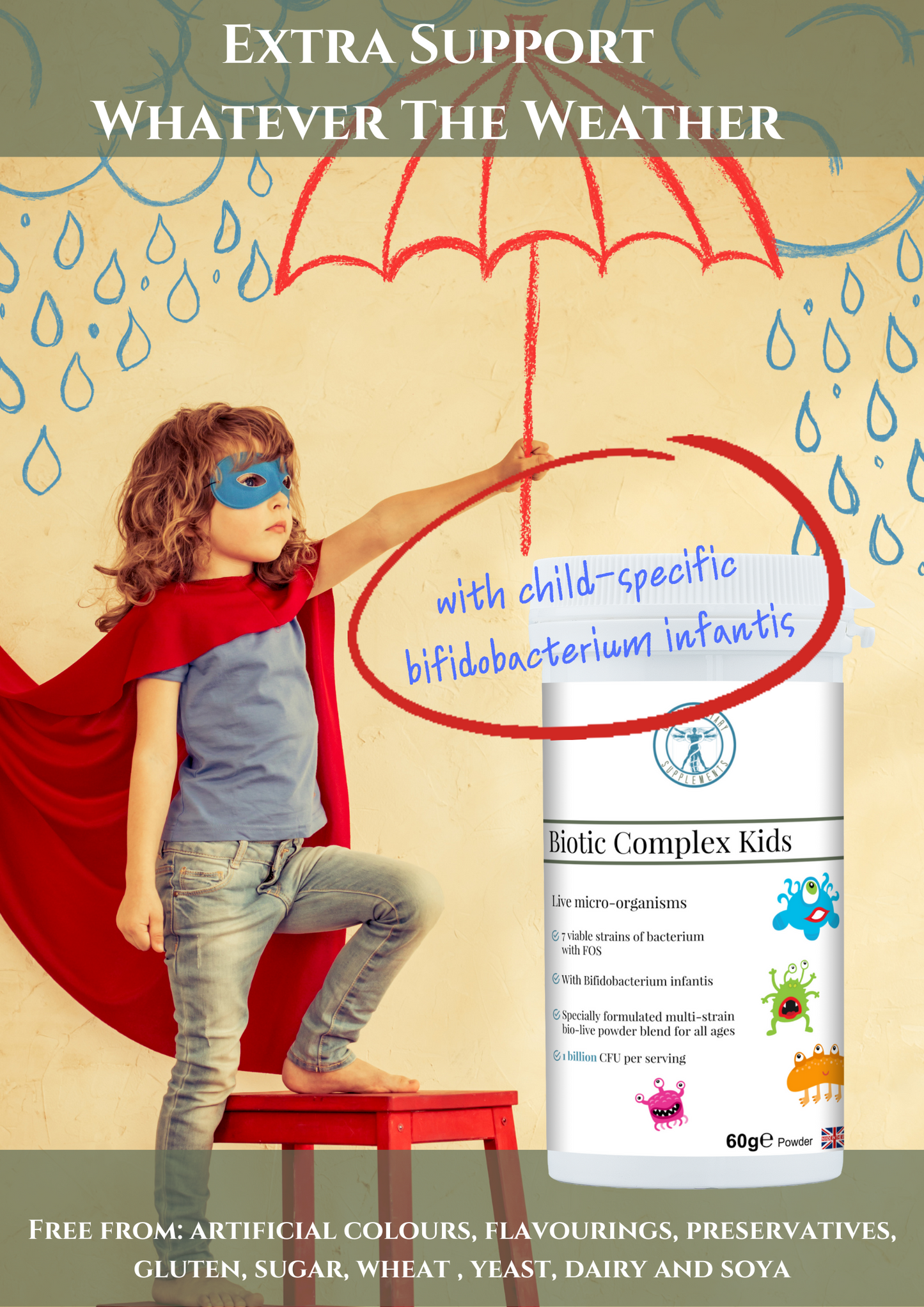Complementary Supplements
Biotic Complex Kids
Biotic Complex Kids
Couldn't load pickup availability
Supporting Little Tummies with Beneficial Bacteria
Children’s digestive systems are constantly developing, and a balanced gut environment plays an essential role in overall well-being. Biotic Complex Kids is a carefully selected blend of 7 live culture strains and prebiotic fibres, delivering 1 billion microorganisms per serving to support your child’s everyday well-being.
What’s Inside?
- Multi-Strain Formula – A powerful blend of 7 strains, including Bifidobacterium infantis, Lactobacillus acidophilus, and Lactobacillus rhamnosus, naturally found in the digestive system.
- High-Strength Support – Provides 1 billion live microorganisms per serving, more than many prebiotic yoghurts, which often contain added sugars, artificial flavourings, or colourings.
- Prebiotic Boost – Contains fructooligosaccharides (FOS), a natural fibre that serves as a food source for beneficial bacteria.
- No Taste = No Fuss – A completely neutral powder that dissolves easily in cool liquids or soft foods—perfect for fussy eaters.
- Long-Lasting Supply – Each bottle provides a full 2-month supply, offering great value for everyday use.
Why Consider a Biotic Supplement for Kids?
From daily routines to external factors, a child’s gut environment is constantly changing. While some products, like prebiotic yoghurts, contain added sugars, sweeteners, and artificial flavours, Biotic Complex Kids is a pure, high-quality alternative with no unnecessary additives.
How to Use
Simply mix one small scoop (1g) into cool water, milk, or soft food once a day. For younger children, start with ¼–½ scoop and gradually increase. Suitable for daily use or as advised by a healthcare professional.
No added sugars, artificial colours, flavourings, or preservatives—just a clean, high-quality blend designed for everyday support.
Ingredients:
Fructooligosaccharide (FOS), Live bacteria mix: Bifidobacterium infantis, Lactobacillus bulgaricus, Lactobacillus acidophilus, Bifidobacterium breve, Lactobacillus casei, Lactobacillus rhamnosus, Streptococcus thermophilus.
Share
